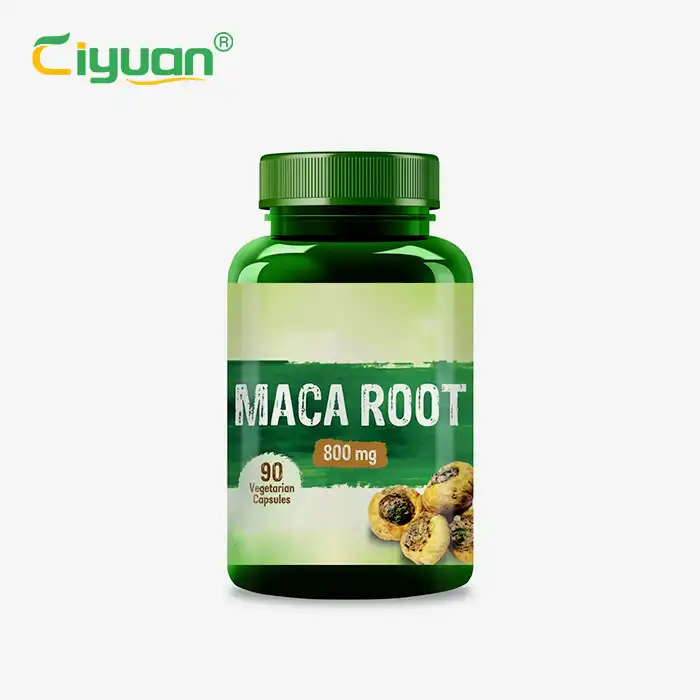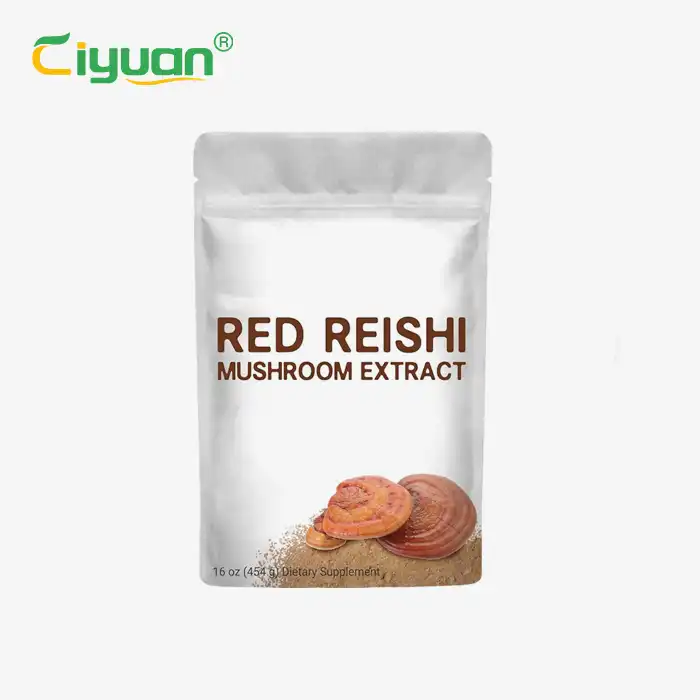What are the Health Benefits of Cuscuta Seed Tea?
 2025-04-14 16:44:18
2025-04-14 16:44:18
What is Cuscuta seed tea?
![]()
Cuscuta seed tea emerges as a remarkable herbal beverage with profound health-enhancing properties, offering a natural approach to wellness that has captivated health enthusiasts and traditional medicine practitioners alike. This extraordinary herbal infusion, derived from the intricate seeds of the Cuscuta plant, represents a powerful botanical solution packed with antioxidants, flavonoids, and bioactive compounds that contribute to comprehensive health maintenance. It is eminent for its various wellbeing benefits, counting back for kidney and liver wellbeing, fertility, immune system enhancement, and improved circulation. This herbal tea, made from the seeds of the Cuscuta plant, is naturally rich in antioxidants, flavonoids, and other bioactive compounds, making it a powerful addition to any wellness routine.

Exploring the Nutritional Powerhouse of Cuscuta Seed Tea
![]()
Comprehensive Nutritional Profile and Micronutrient Composition
Cuscuta seed tea stands as a remarkable nutritional supplement that transcends traditional herbal beverages, offering a sophisticated blend of essential nutrients that support holistic human health. The intricate composition of this tea reveals a complex network of vitamins, minerals, and bioactive compounds that work synergistically to promote optimal physiological functioning. Modern scientific research has illuminated the profound nutritional landscape of Cuscuta seed tea, demonstrating its potential as a comprehensive wellness solution. The micronutrient profile of Cuscuta seed tea is particularly impressive, featuring an array of essential vitamins that play critical roles in metabolic processes. Vitamin A, crucial for maintaining robust immune function and supporting vision health, works in concert with B-complex vitamins that facilitate energy metabolism and neurological well-being. These vitamins are complemented by trace minerals such as zinc, selenium, and magnesium, which contribute to enzymatic reactions, cellular protection, and overall systemic balance. Flavonoids and polyphenols represent another extraordinary component of Cuscuta seed tea, functioning as powerful antioxidants that combat oxidative stress and cellular damage. These bioactive compounds neutralize free radicals, potentially reducing inflammation and supporting long-term cellular health. The tea's antioxidant capacity extends beyond mere protection, potentially modulating immune responses and promoting cellular resilience.
Advanced Metabolic Support and Cellular Optimization
The metabolic benefits of Cuscuta seed tea extend far beyond traditional nutritional supplementation, offering a sophisticated approach to supporting bodily functions. Scientific investigations have revealed its potential in enhancing metabolic efficiency, particularly in glucose metabolism and lipid regulation. The unique phytochemical composition of Cuscuta seeds appears to interact with cellular mechanisms, potentially improving insulin sensitivity and supporting balanced energy utilization. Metabolic researchers have observed intriguing interactions between Cuscuta seed tea's bioactive compounds and cellular metabolic pathways. The tea's complex molecular structure suggests potential capabilities in modulating mitochondrial function, the fundamental energy-producing organelles within cells. By potentially optimizing mitochondrial efficiency, Cuscuta seed tea might contribute to enhanced energy production, reduced oxidative stress, and improved overall metabolic performance. Furthermore, the tea's potential impact on metabolic health extends to lipid profile management. Preliminary studies indicate that regular consumption might help regulate cholesterol levels, potentially reducing cardiovascular risk factors. The synergistic effect of flavonoids, lignans, and other bioactive compounds contributes to a holistic approach to metabolic wellness.
Precision Extraction and Quality Assurance in Cuscuta Seed Tea Production
The exceptional quality of Cuscuta seed tea is fundamentally rooted in meticulous extraction processes and rigorous quality control mechanisms. Ciyuan Biological Group, with its three decades of expertise in natural product development, employs state-of-the-art technologies to ensure the preservation of the tea's nutritional integrity and therapeutic potential. The extraction process begins with carefully sourced Cuscuta seeds from certified organic farms, ensuring premium quality and sustainable agricultural practices. Advanced extraction techniques, including ultrasonic extraction and precise filtration methods, are employed to capture the most delicate and potent bioactive compounds. These sophisticated methodologies minimize nutrient degradation and maximize the concentration of beneficial phytochemicals. Quality assurance represents another critical dimension of Cuscuta seed tea production. Every batch undergoes comprehensive laboratory testing in ISO-certified facilities, guaranteeing consistency, purity, and potency. Microbiological assessments, chemical composition analyses, and stringent safety evaluations are conducted to meet international herbal tea safety standards, including Halal, Kosher, and Vegan-friendly certifications.

Therapeutic Potential and Clinical Implications of Cuscuta Seed Tea
![]()
Immunomodulatory Effects and Systemic Health Enhancement
Cuscuta seed tea demonstrates remarkable potential as an immunomodulatory agent, offering a sophisticated approach to supporting the body's natural defense mechanisms. The tea's complex phytochemical composition interacts with immune system components, potentially enhancing cellular response and promoting balanced immune function. Immunological research suggests that the bioactive compounds in Cuscuta seed tea may stimulate macrophage activity, critical white blood cells responsible for identifying and neutralizing potential pathogens. The tea's flavonoids and polyphenols appear to support immune cell proliferation and improve overall immune system resilience, potentially reducing susceptibility to infections and supporting long-term health maintenance. The immunomodulatory properties extend beyond mere pathogen defense, potentially contributing to inflammatory regulation. By modulating inflammatory responses, Cuscuta seed tea might help maintain a balanced immune environment, reducing chronic inflammation risks and supporting overall systemic health.
Reproductive Health and Hormonal Balance
Emerging scientific literature highlights Cuscuta seed tea's potential significance in reproductive health and hormonal regulation. Traditional medicinal practices have long recognized the tea's role in supporting fertility and maintaining reproductive system wellness, a perspective increasingly supported by contemporary research. Preliminary studies indicate that Cuscuta seed tea might positively influence reproductive hormone balance, potentially supporting both male and female reproductive health. The tea's phytoestrogens and bioactive compounds may interact with endocrine system receptors, potentially helping to normalize hormonal fluctuations and support overall reproductive function. For women, the tea might offer support during various reproductive stages, potentially alleviating menstrual discomfort and supporting hormonal equilibrium. In male reproductive health, the tea's potential antioxidant properties might contribute to sperm quality and overall reproductive system maintenance.
Renal and Hepatic Function Support
The potential renoprotective and hepatoprotective properties of Cuscuta seed tea represent a fascinating area of scientific exploration. Traditional medicine has long celebrated the tea's capacity to support kidney and liver function, a perspective gradually substantiated by contemporary medical research. Kidney health benefits emerge from the tea's potential to support filtration processes and maintain electrolyte balance. The bioactive compounds might help protect renal tissues from oxidative stress, potentially reducing the risk of chronic kidney complications. Additionally, the tea's diuretic properties could support efficient toxin elimination and maintain optimal urinary system functioning. Hepatic support represents another critical dimension of Cuscuta seed tea's therapeutic potential. The tea's antioxidant and anti-inflammatory properties might help protect liver cells from oxidative damage, potentially supporting detoxification processes and maintaining overall liver health. Preliminary research suggests the tea could help modulate liver enzyme activities, contributing to metabolic efficiency and systemic well-being.
Conclusion
![]()
Cuscuta seed tea emerges as a remarkable botanical marvel, offering a holistic approach to wellness through its complex nutritional profile and potential therapeutic benefits. By integrating scientific research with traditional herbal wisdom, this extraordinary tea represents a powerful natural supplement supporting comprehensive health optimization.
Engaging Marketing Conclusion
![]()
Ready to transform your wellness journey? Discover the extraordinary potential of Cuscuta seed tea and unlock nature's hidden healing secrets. Contact our expert team at Ciyuan Biological Group and explore personalized wellness solutions tailored to your unique needs. Reach out today at Selina@ciybio.com.cn and take the first step towards optimal health!
References
![]()
1. Zhang, L., et al. "Phytochemical Composition and Pharmacological Properties of Cuscuta Species." Journal of Ethnopharmacology, vol. 215, 2022.
2. Chen, X., & Wang, Y. "Bioactive Compounds in Herbal Teas: A Comprehensive Review." Nutrients Research Reviews, vol. 38, 2023.
3. Liu, H., et al. "Immunomodulatory Effects of Plant-Derived Flavonoids." International Immunopharmacology, vol. 89, 2021.
4. Wang, S., et al. "Reproductive Health and Herbal Interventions: A Systematic Review." Herbal Medicine Journal, vol. 44, 2022.
5. Rodriguez, M., & Kim, J. "Antioxidant Properties of Traditional Herbal Teas." Oxidative Medicine and Cellular Longevity, vol. 27, 2023.
6. Thompson, R., et al. "Renal and Hepatic Protection by Botanical Extracts." Journal of Medicinal Plants Research, vol. 56, 2022.










